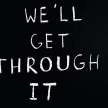What is family and do we value our family enough?
Family is one of the most fundamental and essential components of our lives. It is the group of people we are born into, or choose to be part of, who provide us with love, support, and guidance throughout our lives. Our family shapes who we are and plays a crucial role in our overall well-being and development.

One of the most significant benefits of having a family is the sense of belonging and connection that it provides. A strong family unit can offer a sense of security and stability that is invaluable in our often unpredictable and uncertain world. Knowing that we have a group of people who care about us and have our back can give us the confidence and resilience to tackle life's challenges.
However, family dynamics can also be complex and challenging at times. Every family is unique, and each member brings their own set of strengths and weaknesses to the table. As a result, conflicts and disagreements can arise, and it is important to develop healthy communication skills and strategies to navigate these challenges.
One of the key components of a healthy family dynamic is effective communication. Being able to express our thoughts, feelings, and needs in a constructive and respectful manner is essential for maintaining positive relationships with family members. It is also important to listen actively and empathetically to others' perspectives and concerns.
Another critical aspect of a healthy family dynamic is mutual respect and understanding. Each family member has their own identity, interests, and values, and it is important to recognize and celebrate these differences. By fostering an environment of acceptance and support, families can build strong bonds and promote individual growth and development.
Family is also essential for our emotional and psychological well-being. Having a strong support system can help us manage stress, anxiety, and other mental health issues. Research has shown that individuals who have positive relationships with family members have better overall mental health and are less likely to experience depression or other mental health conditions.
In addition to emotional support, families also provide practical support and guidance throughout our lives. From teaching us basic life skills as children to providing advice and assistance as we navigate adulthood, families play a crucial role in our personal and professional development. Having family members who are invested in our success and well-being can give us the motivation and resources to pursue our goals and dreams.
Despite the many benefits of family, it is important to recognize that not all families are healthy or supportive. Unfortunately, some families may be dysfunctional or abusive, which can have significant negative impacts on individual well-being. In these situations, it is important to seek support from external resources, such as therapists or support groups, to ensure that our safety and well-being are prioritized.
Building a healthy and positive family dynamic takes effort and dedication from all members. It involves cultivating strong communication skills, fostering mutual respect and understanding, and prioritizing individual and collective well-being. It also involves recognizing and addressing any negative patterns or behaviors that may be undermining the family's health and happiness.
Fortunately, there are many resources and strategies available for families who are looking to strengthen their relationships and build a healthier dynamic. Family therapy and counseling can be a valuable tool for addressing conflicts and building stronger communication skills. Family members can also engage in activities and rituals that promote connection and bonding, such as shared meals or family vacations.
In conclusion, family is an essential component of our lives that provides us with love, support, and guidance throughout our journey. A healthy and positive family dynamic can have significant positive impacts on our overall well-being and development, while a dysfunctional or abusive family dynamic can have significant negative impacts. By prioritizing effective communication, mutual respect and understanding, and individual and collective well-being, families can build strong bonds and promote positive growth and development.
About the Creator
shaked vak
Hi Iam shaken vak very nice to see that you have decided to enter my articles I have decided to start publishing some articles I have written I have never published my articles before.






Comments
There are no comments for this story
Be the first to respond and start the conversation.